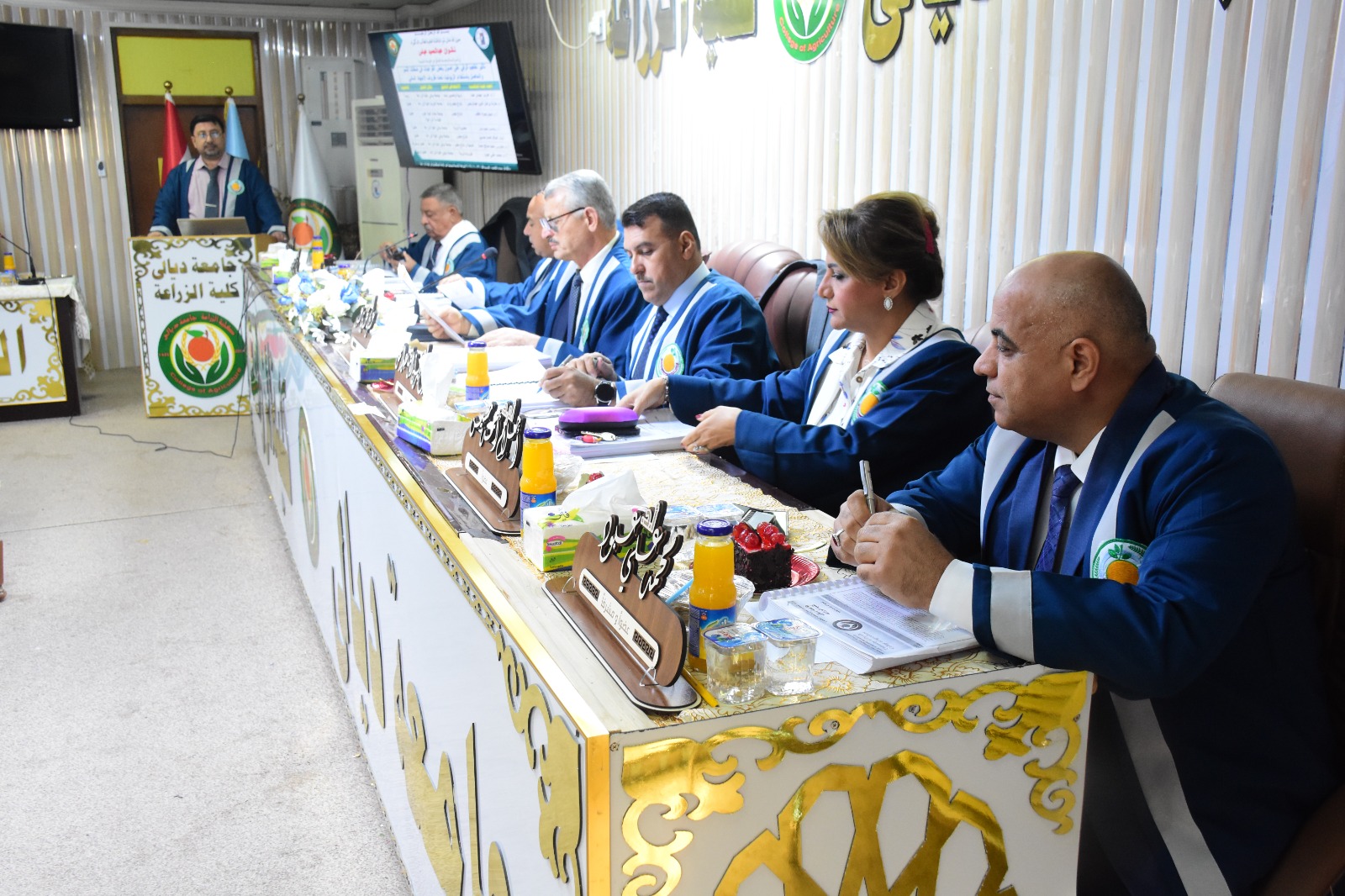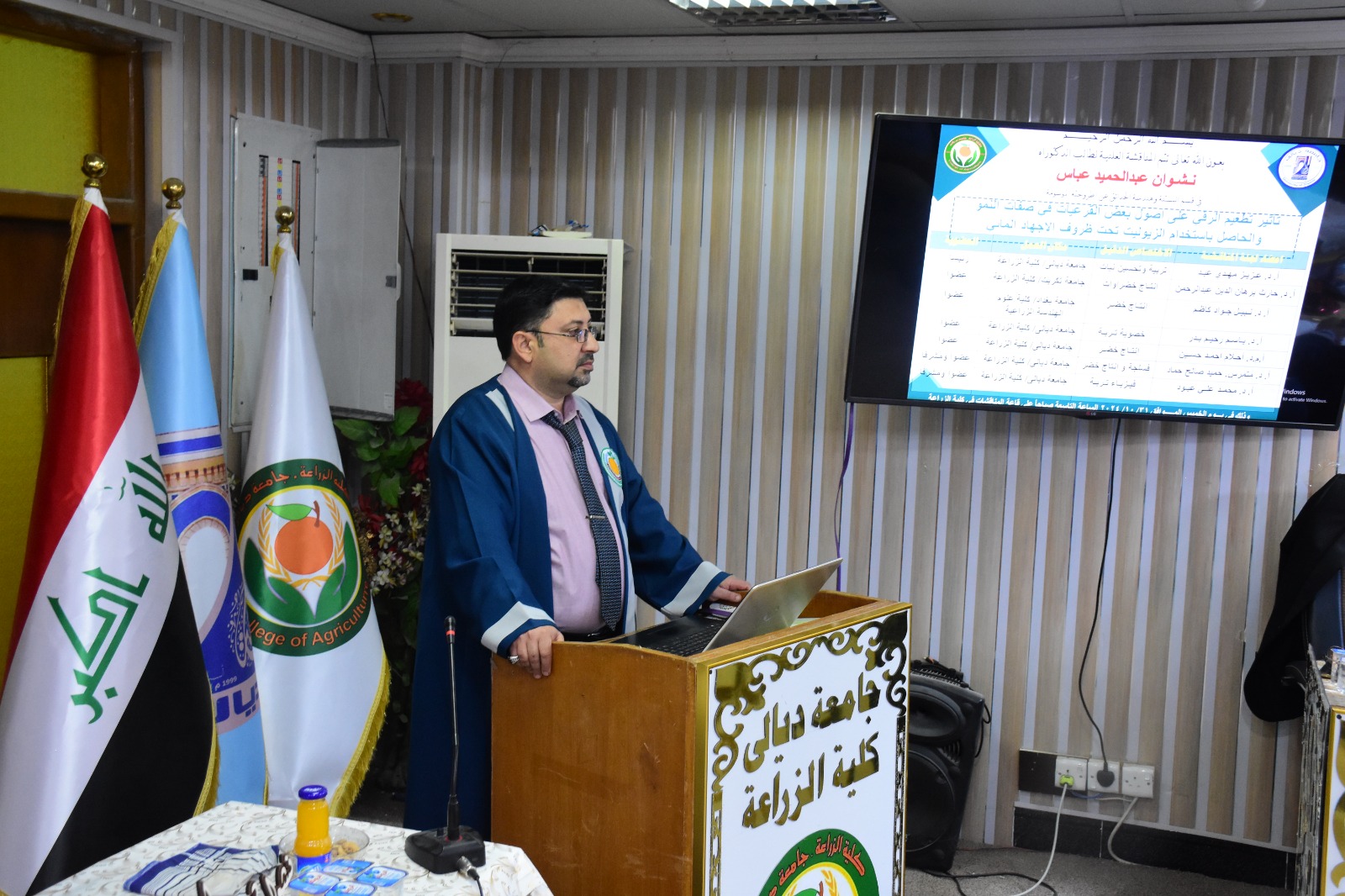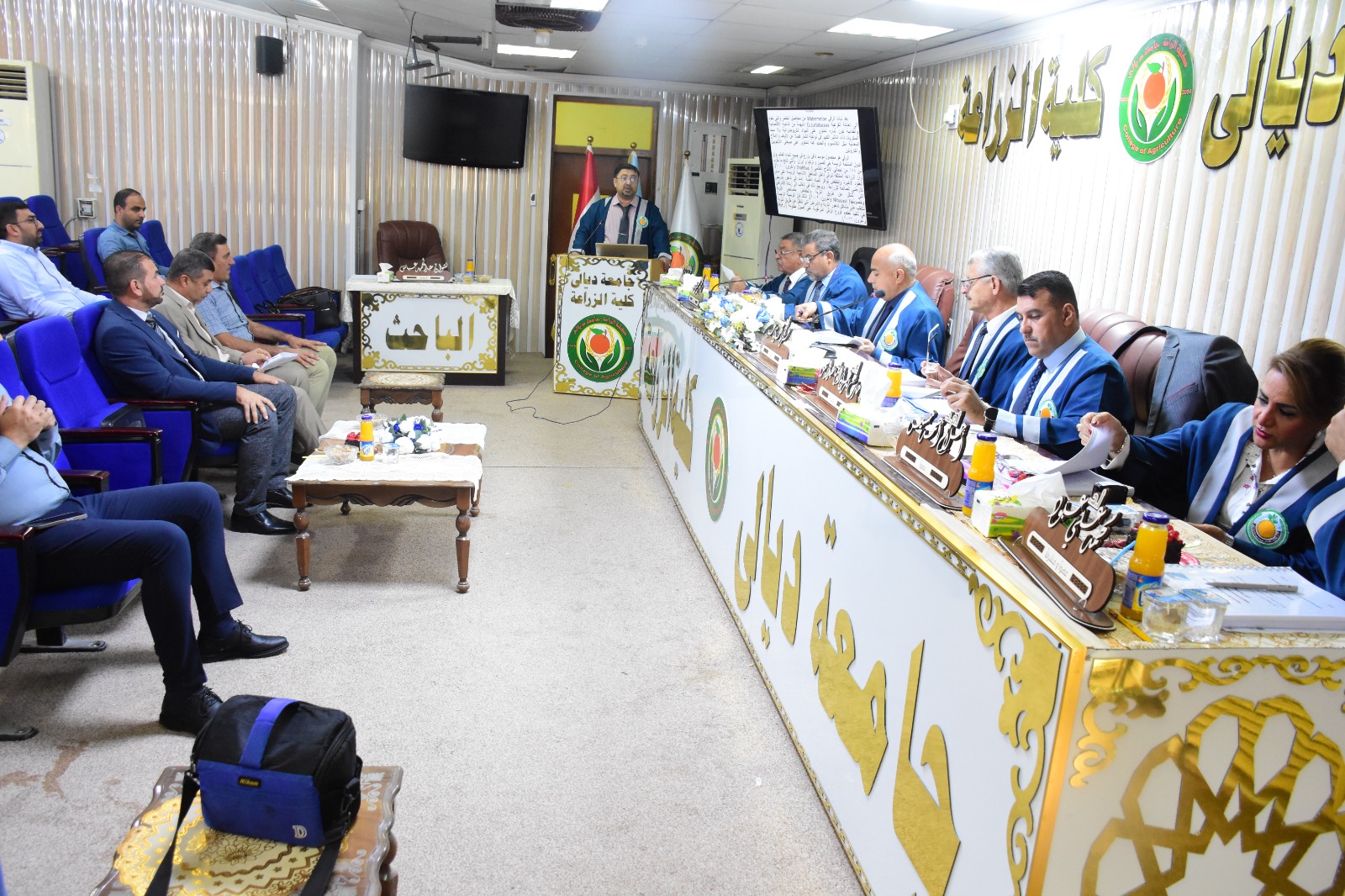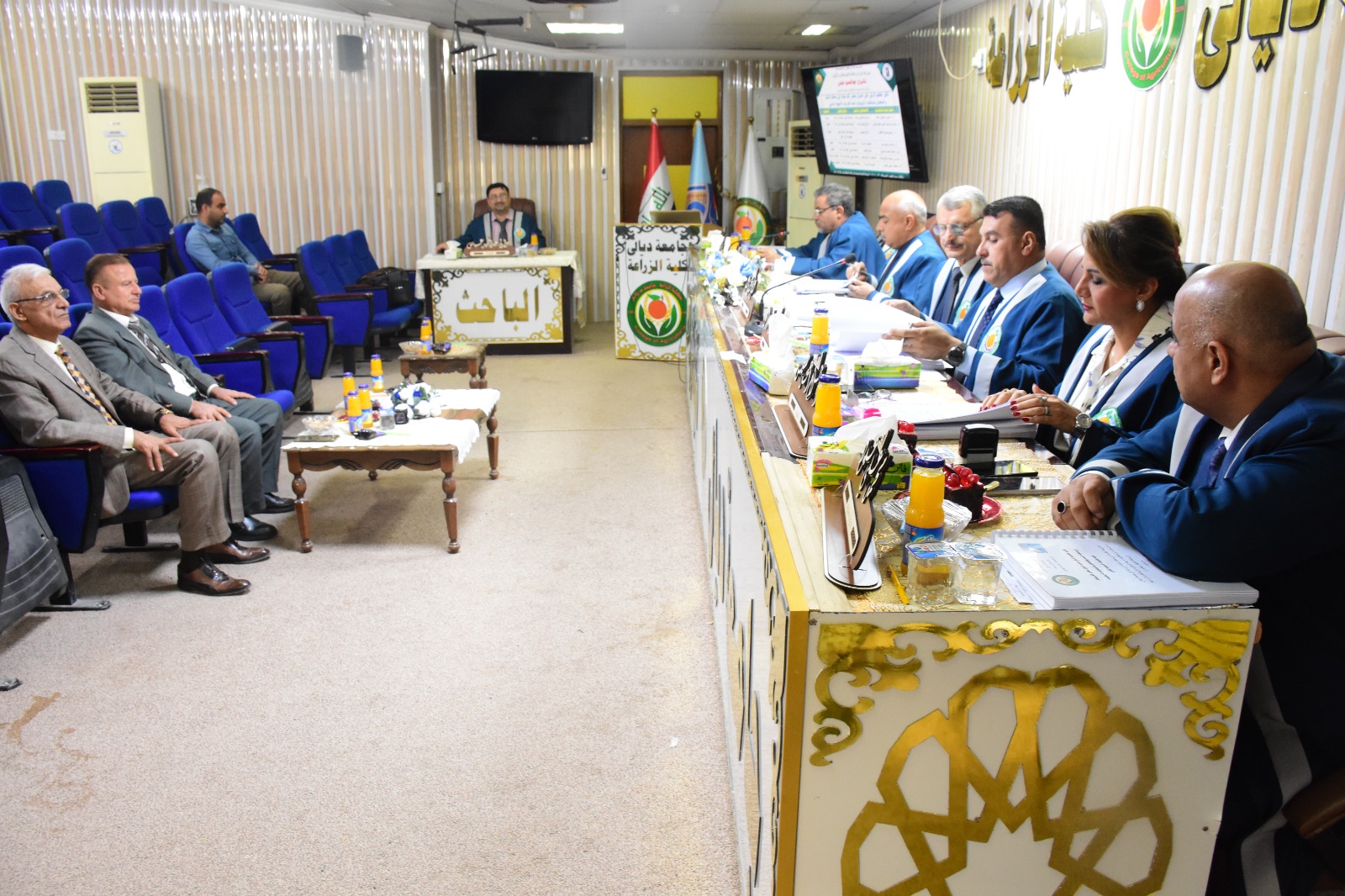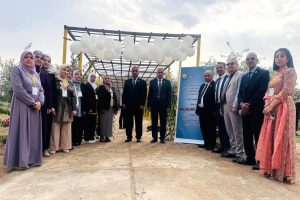A doctoral dissertation in the Faculty of Agriculture on the effects of grafting watermelon onto certain cucurbit rootstocks on growth characteristics and yield, utilizing zeolite under conditions of water stress.

The College of Agriculture at the University of Diyala held a defense for a doctoral dissertation entitled “The Effect of Grafting Watermelon onto Certain Cucurbit Rootstocks on Growth Characteristics and Yield Using Zeolite under Water Stress Conditions.”
The study, presented by student Nashwan Abdul Hamid Abbas, aimed to assess the compatibility of grafting watermelon onto various cucurbit rootstocks, specifically zucchini, pumpkin, and imported seed squash, and to examine the effects of this grafting on vegetative, productive, and quality traits of watermelon. Additionally, the research explored the impact of zeolite mineral and water stress, along with their interaction, on improving certain water-related characteristics of watermelon leaves and soil fertility traits, assessing the effects on the growth and yield of watermelon in Diyala province. The experiment was conducted in the Al-Azeem sub-district, Al-Khalis district, Diyala, specifically in the village of Bu Ahnayhin, during the 2022 agricultural season, focusing on grafting watermelon scions onto three cucurbit rootstocks (zucchini, pumpkin, and seed squash).
The study reached several conclusions, including the success of grafting watermelon onto the studied rootstocks (zucchini, pumpkin, and seed squash), which enhanced vegetative growth indicators as well as the productive and quality characteristics of the fruit. Key factors for successful grafting include the specific grafting technique, the skill of the labor involved, and the control of temperature and humidity, particularly within the first week post-grafting. The primary purpose of grafting cucurbit crops is to provide protection against soil-borne diseases. Furthermore, grafting has the potential to mitigate the negative effects of environmental stress on watermelon production effectively. The enhanced resilience of grafted plants to abiotic stress is facilitated by modifications in root traits that are deeper and more extensive.
Zeolite is recognized as an effective and stimulating material for absorption processes, possessing a high ion-exchange capacity and selective affinity for various molecules and ions. Zeolite has high cation exchange capacity, moisture retention, adsorption capabilities, and unique chemical, fertility-related, and physical properties. Its use contributes to improved water use efficiency by enhancing the soil’s water retention capacity and improves nutrient availability in soil.
Recommendations of the Study:
-
Use wild rootstocks for grafting different species of cucurbit plants, particularly colocynth (bitter gourd).
-
Further research is needed to understand the formation of the graft union between watermelon and cucurbit rootstocks and the processes that occur at the union between the watermelon scion and rootstock stems.
-
It remains unknown whether grafting might lead to changes in gene expression in watermelon that mediate the physiological processes in grafted seedlings.
-
Research is needed to better understand the potential roles of gene regulation in the diverse biological and metabolic processes within grafted watermelon.
